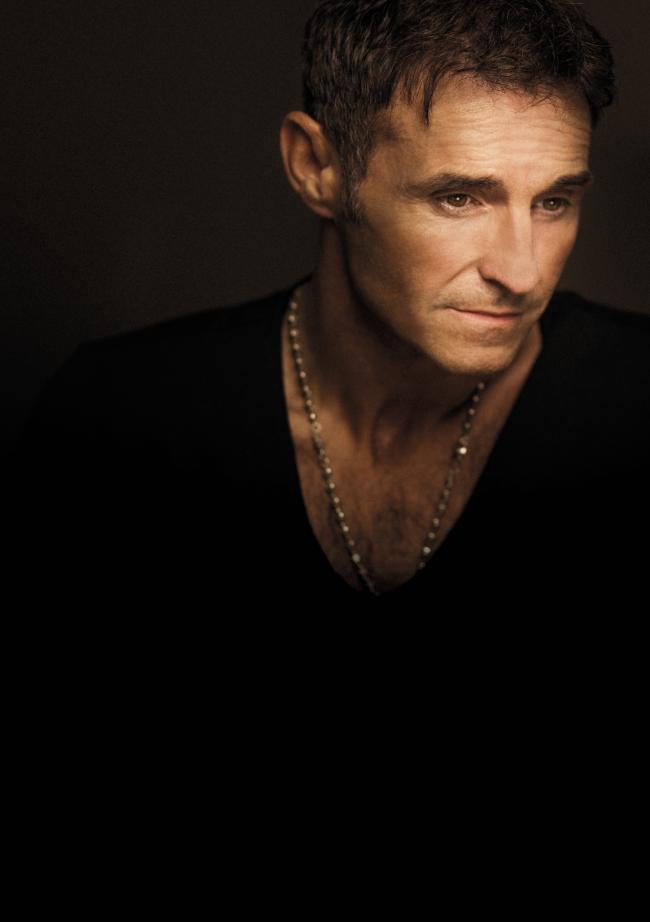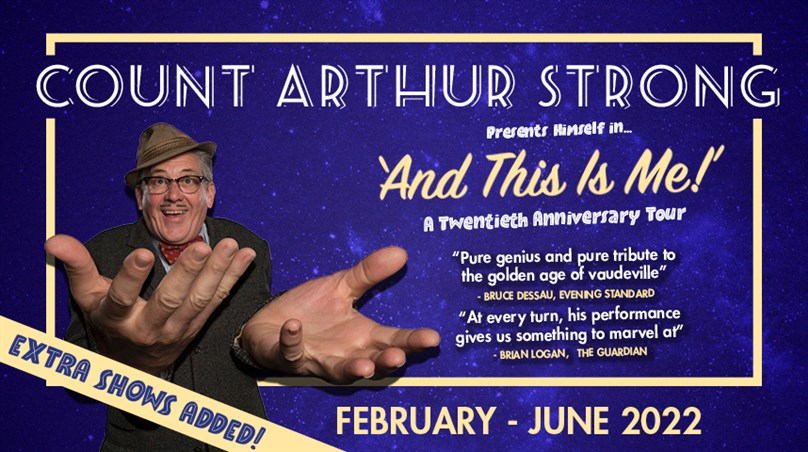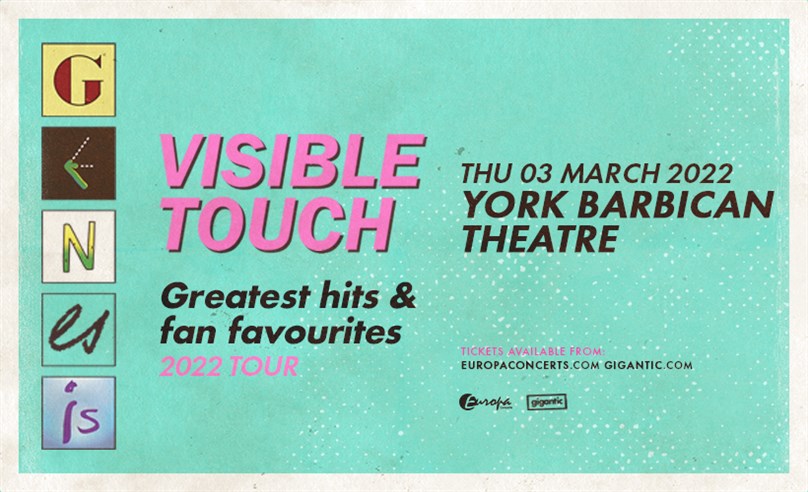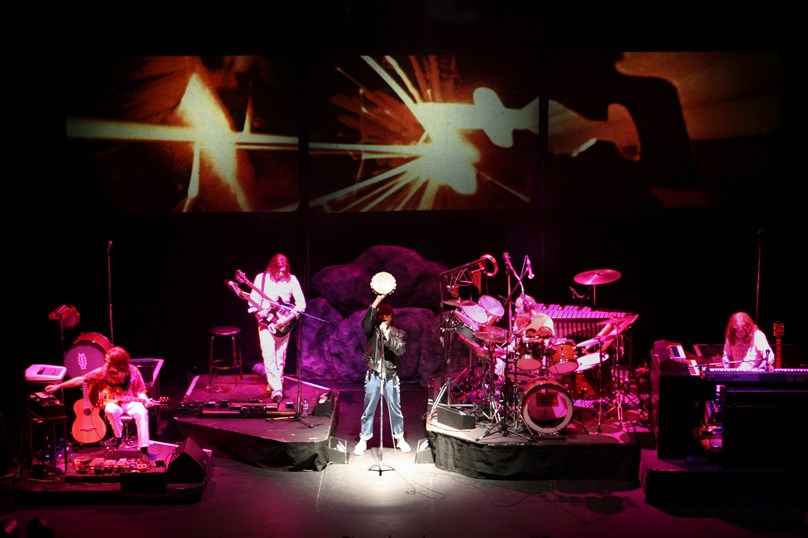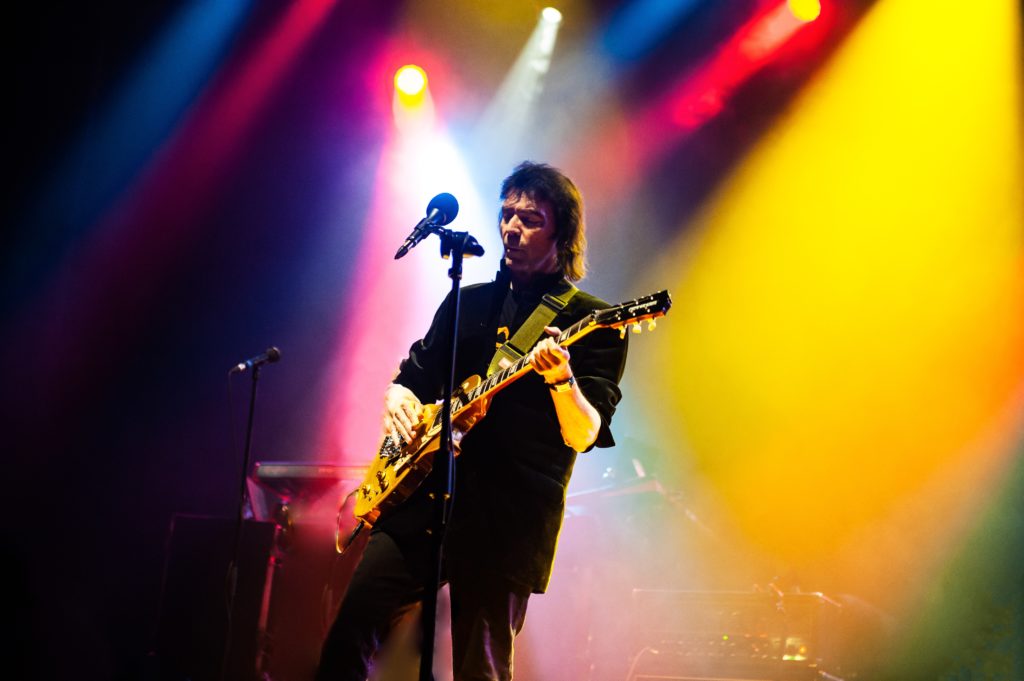
GUITARIST Steve Hackett’s 25-date Genesis Revisited – Foxtrot At Fifty tour arrives at York Barbican on Saturday night (24/9/2022).
Hackett had joined the English progressive rock band in 1971, and Foxtrot would be their fourth album, recorded in August and September 1972 for release on Charisma on October 6 that year.
“We were a young, struggling band at that time,” recalls Pimlico-born lead guitarist Steve, now 72, who played with Peter Gabriel, Phil Collins, Mike Rutherford and Tony Banks until 1977.
“By the time we were doing Foxtrot, the band was becoming more ambitious. Foxtrot is a must for fans of the early Genesis work. Fifty years ago? It doesn’t feel like those ideas are 50 years old because it was-genre defining, rather than following trends. It still sounds current now.”
Foxtrot, the one with Genesis’s longest-ever song, all 22 minutes and 52 seconds of the album-closing Supper’s Ready, became a college student staple of the Seventies. “I’ve got one or two friends saying it was the record that got them through college, got them through isolation, and that played its part in the Genesis back story, that connection with Foxtrot, that romance with it,” says Steve.
“Peter was enacting things theatrically from his lyrics to personify Genesis, and there were so many elements that went into constituting Genesis’s magic. Music sticks with people when it affects them when they’re young, when the school curriculum is being forced on them and you’re told you have to be good at school.”
Foxtrot became the first Genesis album to make the UK charts, its diversity encapsulated in the science fiction-influenced Watcher Of The Skies and the social commentary of Get ‘Em Out By Friday, with its depiction of concrete tower blocks replacing ageing slums, not out of concern for communities but driven by the greed of developers.
Hackett, meanwhile, was the lead writer of Can-Utility And The Coastliners and also contributed his classically inspired solo piece Horizons.
Fifty years on, Steve returns to Foxtrot in concert in the company of two Swedes, Nad Sylvan, vocals, and Jonas Reingold, bass and backing vocals; Roger King, keyboards; Rob Townsend, saxophone, flutes and keys, and Craig Blundell, drums.
“Over the years, I’ve played with orchestras to expand the sound, and now, the way it can be presented live is with an expanded sound palette, with real brass, real woodwind, as well as keyboards,” says Steve.
“It’s music that’s survived well beyond its sell-by date. Maybe ‘classical’ music has to be 100 years old, but this is 50 years old. I was part of creating it, and going back to it, I’m struck by the breadth of Foxtrot.
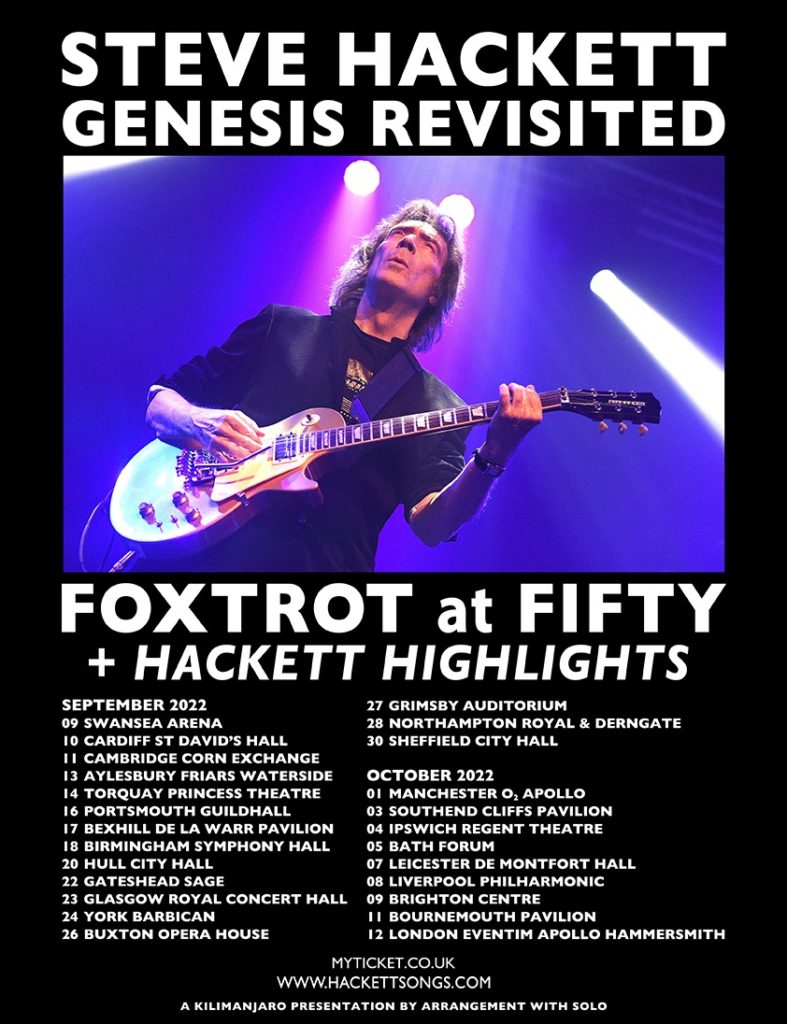
“People will have their favourites, maybe they’re attracted to the more proggy moments or maybe the less proggy, but what matters is that it stuck with them. Songs that first struck me as ‘just another of our pieces’, now I look back and think it’s very detailed music, as detailed as a five-piece band could be.”
Steve is revelling in broadening the Foxtrot canvas. “It takes a lot of rehearsal, but the gigs have been going very well. Now we can add the reverb, which is all part of the detail, and it all sounds much bigger than it did on the record. It’s music that was written to be performed live within palace walls in Italy, where the music could be recorded around the rooms and you got the feel of a space age band playing,” he says.
“Now, on this tour, the little Cinderella songs get the chance to go to the ball. I want to be authentic, but to expand, to extend, the sound is important. I don’t want it to be a slavish reproduction of the record, so we’re doing three-part harmonies rather than one-and-a-half-part harmonies.”
What happens to Supper’s Ready, Steve? “At the end, I tend to take it to the mountain and then keep it going, so I’m striking a balance between reverence and having a rave-up,” he says. “It’s not a heavy metal show but to have these wide dynamics brings it alive.”
Although the term “prog rock” has negative connotations for nay-sayers, Steve prefers to think of the possibilities of such flexible music-making. “It’s supposed to involve everything, so that it will evolve to include world music, the blues, whatever. That’s why it’s ‘music from heaven’,” he says.
“I’ve just got this love of classical music; my guilty pleasure was listening to [Spanish classical guitarist Andre] Segovia at the same time as watching Jimi Hendrix, and then the baroque and the blues did come together. Music without prejudice is the ideal; the stuffed shirt making way for letting it all hang out.”
Steve continues: “John Lennon said some nice things about our [Genesis] music; Yehudi Menuhin used some of my music, and if there was a point that they agreed on, I had their ear for a few seconds.”
Steve, who “wants to be the glue” that bonds different musical forms, reflects on the Steve Hackett of today and of 50 years ago. “The similarities between these two different times in my life is that I’m still trying to get it right. It’s never finished. One lifetime is never enough if you’re dead serious. Music doesn’t end with Chuck Berry. It goes on,” he says.
“In heaven, my ideal band would have both Lennon and Menuhin in it. Maybe their confluence came with Eleanor Rigby, as realised by George Martin.”
Looking ahead to Saturday, Foxtrot will be preceded by an hour of “Hackett Highlights”, drawn from both his Genesis and solo catalogues. Be ready for much more than Supper’s Ready.
Steve Hackett, Genesis Revisited – Foxtrot At Fifty + Hackett Highlights, York Barbican, Saturday (24/9/2022), 7.30pm; Sheffield City Hall, September 30, 7.45pm. Box office: York, yorkbarbican.co.uk; Sheffield, sheffieldcityhall.co.uk; both concerts, hackett.songs.com and myticket.co.uk.

